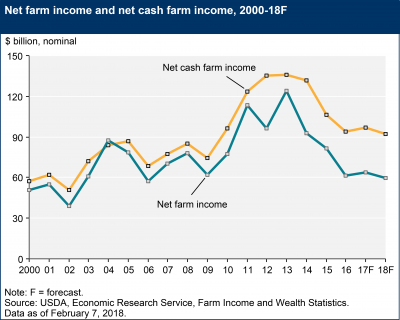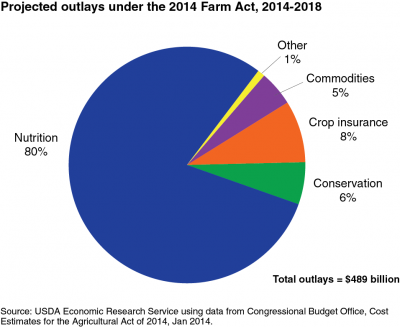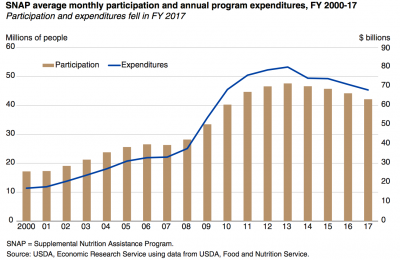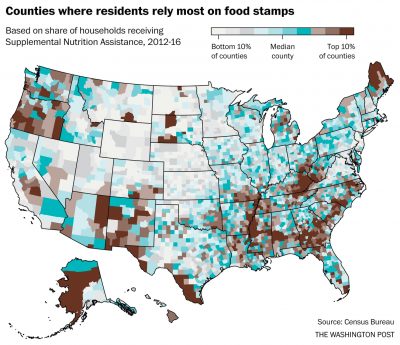The House Agriculture Committee unveiled a draft farm bill Friday that would revamp a key international food aid program, boost risk management options for specialty crop growers and nullify California's…
After House Passage, Farm Bill Perspective from Chairman Conaway
House Agriculture Committee Chairman Mike Conaway (R., Tex.) was a guest on Friday’s “Adams on Agriculture” radio program with Mike Adams. After failing to pass on the House floor last month, the measure succeeded on Thursday by a narrow 213-211 margin. Chairman Conaway discussed Farm Bill issues going forward in anticipation of the Senate passing its version of the Bill, and the subsequent formation of a conference committee.
During the interview (audio replay here (MP3- 7:00); unofficial FarmPolicyNews transcript here) Chairman Conaway indicated that, “I’m excited about this next step of getting to conference once Pat’s [Senate Ag Committee Chairman Pat Roberts (R., Kans.)] successful over in the Senate.”

Mr. Adams queried: “Yeah, it is expected that the Senate will pass their bill next week. Then you go to that conference committee. Obviously big differences between the two bills. What do you expect as far as how that will play out and what you will be able to keep in the final bill from your version?”
Chairman Conaway stated that, “Well, I’m not sure we can answer that yet until we see what, you know, there’s a lot of floor action in the Senate in terms of amendments and changes like that. I do know that the score was just released on the Senate bill and Pat brings it in deficit neutral, like we did, which is, you know, kudos to him for being able to do that.
“I do notice that there’s about a $400 million cut to Title 1 and Title 11 to the safety net, which makes it interesting for my colleague Collin [House Agriculture Committee Ranking Member Collin Peterson (D., Minn.)] because he’s been bragging on the Senate bill, and also criticizing the House bill for not doing more for Title 1 and Title 11, and yet he thinks that the Senate bill’s better with a $400 million cut to those two titles. So there’s going to be a lot of work to be done, Michael. Premature to, though, where we might wind up and land.”
When asked if he and Rep. Peterson were talking, Chairman Conaway noted, “But now that we’ve got it done, that’s all behind us. I’m hopeful Collin can put it behind him, and I’ll put it behind me, and we’ll reengage with the conference committee once Pat gets it done. Pat will be the chairman of the conference committee, and so once he gets his bill done next week, and I’ve got great confidence that he will, then he will start that process and form it up. Collin and I will appoint our conferees and we’ll go about what’s probably going to be a pretty arduous task of blending these two bills.”

Turning specifically to SNAP issues (food stamps), which along with conservation policy and farm program design, will be key issues to resolve in the conference committee, Mr. Adams asked, “The stricter work requirements for food stamp recipients, the controversial part of your bill that’s been such a challenge in the House, not in the Senate version. How strong are you going to fight for that in the conference committee?”
Chairman Conaway stated,
Well, I’ve got three and a half years of my life invested in improving SNAP, and I’m anxious to have the conversation with anybody who will have it as to why, with a 3.8% unemployment rate, people think it’s horrible to ask work capable individuals 18 to 59 who are not a caregiver of a six-year-old or younger and are not physically and mentally disabled, why asking them to work for 20 hours a week is such a terrible thing.
When asked, “Is that [the SNAP issue] a deal-breaker for you in conference?” Chairman Conaway responded by explaining, “Too early to tell. I mean, obviously I’ve got a lot invested in it. I’ve got a lot of my Republican members who are insistent that that be in the final deal. But until Pat gets it done, it’s premature to talk about any kind of red lines or deal-breakers or anything like that. That sets up a false narrative that I’m not ready to have until we know what the parentheses are. Once we know where the parentheses are, then we can begin to move forward to get that done.
“The other thing, Michael, I don’t want to do, and I don’t think Pat does, either, is negotiate through the public airways and in the newspaper. We need to do that negotiation face-to-face, and so answering a question like that sets us up for failure more than anything else.”

Also with respect to the House passed Farm Bill, Washington Post writers Caitlin Dewey and Erica Werner reported last week that, “The legislation also directs the Agriculture Department to reevaluate school lunch nutrition standards adopted under the Obama administration. It proposes to expand who counts as a ‘farmer’ for purposes of subsidies, the compensation USDA distributes when crop prices fall below predetermined references.
“It eliminates much of the Conservation Stewardship Program — aimed at encouraging farmers to address soil, air and water quality on their land — and folds it into the Environmental Quality Incentives Program, which is oriented toward compensating farmers for one-off conservation projects. And despite efforts by some lawmakers to end them, it extends federal supports for the U.S. sugar industry through programs that control the amount of foreign and domestic sugar on the U.S. market and guarantee a minimum price for producers if sugar prices drop.”
And the Associated Press reported on Thursday that, “House Speaker Paul Ryan, R-Wis., said the [SNAP work requirement] changes will ‘close the skills gap, better equip our workforce, and encourage people to move from welfare to work, so more Americans have the opportunity to tap into the economic prosperity we’re seeing right now.’
“The legislation has traditionally been bipartisan, blending support from urban Democrats supporting nutrition programs with farm-state lawmakers supporting crop insurance, farm credit, and land conservation.”
The AP article also pointed out that, “Although the House bill broke from that bipartisan convention, its position on work requirements for SNAP recipients is consistent with the Trump administration’s priorities. Earlier this year, President Donald Trump signed an executive order directing federal agencies to enforce existing work requirements and review all programs, waivers and exemptions.”
Meanwhile, Andrew Van Dam reported on Monday at The Washington Post Online that, “If Republicans succeed in their multi-front campaign to cut back on food stamps, the burden will fall heaviest on the working-class, rural white voters on whom President Trump has staked the future of their party.”

The Post article explained that, “In the Trump era, the Republican Party has relied heavily on rural voters. And the most rural fifth of the population is also the most likely to live in a household that receives food stamps.”
“The distribution of food stamps isn’t uniform across the urban-rural spectrum. It depends on the policies of the states that administer the program as well as the poverty of residents. But food-stamp use is particularly high in key Trump strongholds such as rural Appalachia, the Ozarks and much of the rural South,” the Post article said.





